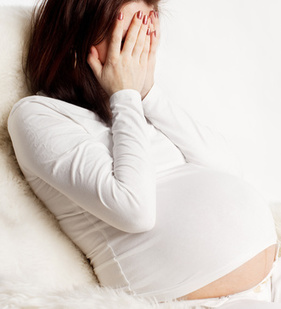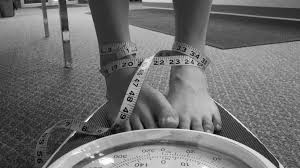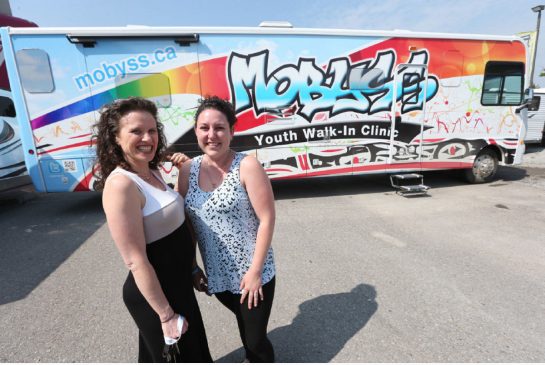https://www.youtube.com/watch?v=PEOFt82GMOI
|
An emotional and personal #poem describing the difficulties common to the contemporary #youth, issues of eating #disorders, self image, and the veiled reassurances given to others to hide these issues.
https://www.youtube.com/watch?v=PEOFt82GMOI
0 Comments
 Pregnancy is often portrayed and described as a time filled with pure joy and excitement, but it is also a time that is associated with immense change and a shift in one's identity that can be stressful too. For women with pre-existing depression and anxiety, pregnancy can be particularly challenging. In this powerful and informative read, author Andrew Solomon explores antenatal depression, a concept often hidden by the more well-known diagnoses of postpartum blues and depression. The article also delves into doctors' and mothers' varying views on treatment during pregnancy, touching on the complexity of antentatal depression including the risks faced if medication and treatment are discontinued or declined, and considering the ethics and controversy behind clinical studies involving pregnant women. "Recalling the Hippocratic oath, doctors who encourage depressed pregnant women to white-knuckle it without medications for the benefit of the fetus set out to do no harm. But there can be harm not only in writing prescriptions but also in withholding them. “One of the reasons we didn’t really recognize antepartum depression for a long time was because it was easier not to, because it puts physicians in such a bind,” said Margaret Spinelli, the director of the maternal mental-health program at Columbia. Depression itself comes with its own host of problems and consequences. Untreated depression or anxiety during pregnancy have been linked in multiple studies to miscarriage, pre-eclampsia, preterm birth, neonatal complications and smaller newborns. Antenatal depression is often accompanied by anxiety and obsessive-compulsive symptoms, and sometimes by psychosis. Cortisol, the stress hormone that is pumped up in women with anxiety and depression, crosses the placental barrier and can reach the fetus. Anxiety in pregnant women is associated with impaired blood flow in the uterine artery, which feeds the placenta. The problems are not only biological. Women experiencing antenatal depression are more likely to engage in damaging behaviors such as drinking, smoking, drug abuse and lack of exercise. They are more likely to be obese. They often cease functioning at work, which can be financially catastrophic. They are less likely to sleep regularly or take prenatal vitamins, and they often miss obstetric appointments. Depression during pregnancy also puts an enormous strain on marriages, possibly creating a poor environment for the child."  In the article, "I Had Postpartum Psychosis - More Must Be Done To Help Others Like Me" a mother from Scotland describes her frightening experience with postpartum psychosis, and discusses the challenges she faced in seeking help, as well as the frustrations with first being labeled as malingering. Ultimately, the author Vonny Moyes, pushes for enhanced awareness of postpartum mental health issues and calls for improved screening and increased support for others like her. "Psychosis doesn’t live up to its Hollywood image; instead it’s often a silent erosion of your own existence, which makes it hard to spot. When delusions and reality blend so seamlessly, you don’t have the self-awareness to shout out. The voices are your reality. And the toxic thoughts. You become caged inside yourself so abruptly that you simply cannot find the fortitude to reach out." |
Description
Supporting and enhancing students' and health professionals' knowledge and understanding of mental health and psychiatry
Archives
June 2017
Categories
All
|


 RSS Feed
RSS Feed
